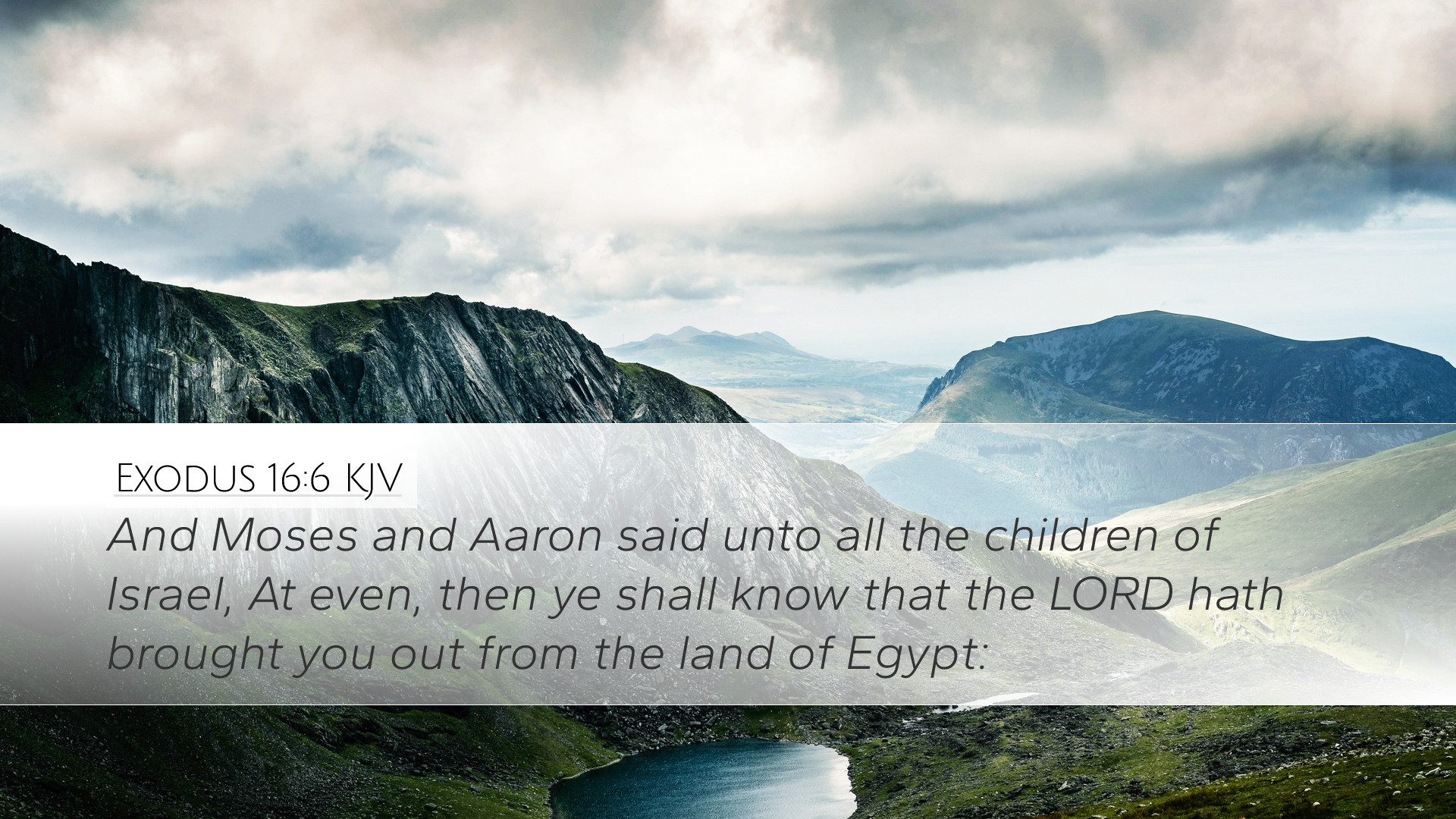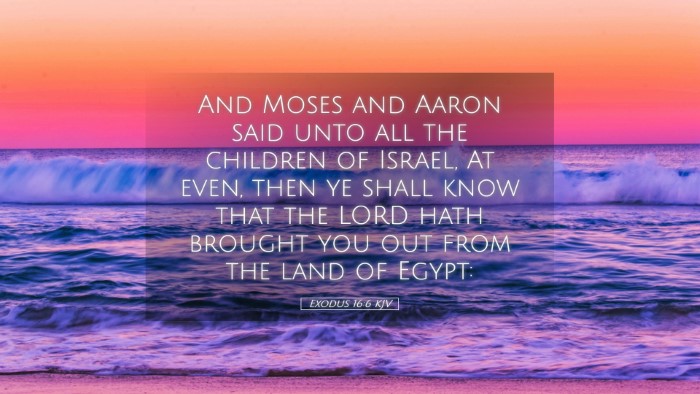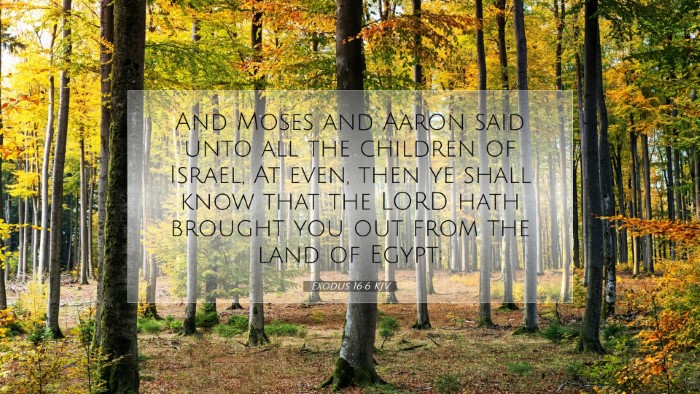Exodus 16:6 - Commentary Overview
This verse, situated in the narrative of the Israelites in the wilderness, serves as a pivotal moment that reflects God's provision and the faith of His people. As such, it warrants a thorough examination incorporating insights from esteemed Bible commentaries.
Text of Exodus 16:6
"So Moses and Aaron said to all the people of Israel, 'At evening you shall know that it was the Lord who brought you out of the land of Egypt,'" (ESV).
Contextual Background
The entire chapter of Exodus 16 describes the Israelites' murmuring against God due to their hunger in the wilderness. Having been freed from slavery in Egypt, they faced immediate challenges that tested their faith and reliance on the Lord.
Insights from Commentaries
Matthew Henry's Commentary
Henry emphasizes the Israelites' grumbling against Moses and Aaron, drawing attention to their lack of faith despite witnessing God's past deliverance. He explains that God's miraculous provision of quail and manna mirrors His consistent care and urges believers to trust in divine providence.
- Miraculous Provision: Henry notes that the evening provision of quail symbolizes God's immediate response to His people's needs.
- Call to Faith: He highlights Moses and Aaron's role as mediators, encouraging the Israelites to acknowledge the Lord in their circumstances.
- Lessons in Gratitude: The commentary stresses the importance of gratitude amidst trials, reminding readers that God's past faithfulness should foster trust in His future provisions.
Albert Barnes' Notes
Barnes provides a detailed interpretation of the verse, asserting that the assurance delivered by Moses highlights the need for spiritual awareness among the people of Israel. He notes:
- The Evening Revelation: Barnes elaborates that the promise made in the evening serves as a reminder of God's sovereignty over creation, revealing His capacity to provide for His people even in dire situations.
- God's Deliverance: He emphasizes the importance of recognizing that their salvation from Egypt was a clear act of God, establishing a pattern of divine intervention that should be remembered.
- Community Response: The gathered Israelites are called to reflect as a community on their identity as the people of God and their reliance on His mercy.
Adam Clarke's Commentary
Clarke focuses on the spiritual implications of the verse, analyzing the necessity of faith in God’s provisions. He addresses various themes:
- The Importance of Awareness: Clarke elucidates that the mention of 'knowing' suggests a deeper understanding and acknowledgment of God's hand in their deliverance.
- The Nature of Expectation: He argues that a posture of expectation is crucial among the faithful; they must look forward to God’s provision even when circumstances seem bleak.
- Significance of Evening: Clarke notes that the evening can represent both the end of day and a time of reflection, a key opportunity for the Israelites to meditate on God's goodness and provision.
Theological Implications
The commentary on Exodus 16:6 illustrates core theological themes relevant to modern believers:
- Divine Providence: This verse encapsulates God's active role in providing for His creation, reinforcing the doctrine of providence where He meets physical needs in alignment with spiritual growth.
- Community of Faith: The call to acknowledge the Lord emphasizes the importance of communal faith, unity in recognizing past deliverance, and shared expectation of future provisions.
- Hope in Trials: The narrative encourages believers to maintain hope and faith during trials, drawing on God's historic deliverance as a foundation for enduring current challenges.
Conclusion
Exodus 16:6 serves not only as a historical account of Israel's experience in the wilderness but also as a rich source of theological insight. The combination of commentaries from Matthew Henry, Albert Barnes, and Adam Clarke invites deeper reflection on God's omnipotent provision and the necessity of faith among His people. This verse echoes through ages, calling the faithful to remember, trust, and act in accordance with the assurance that the Lord will provide.


